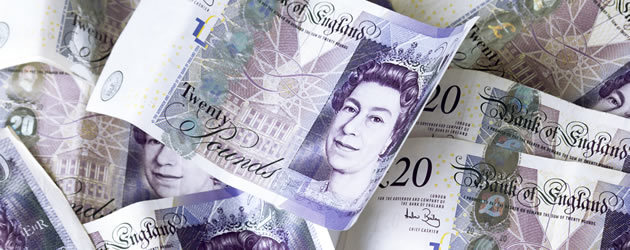Pound Sterling (GBP) Trends Lower Today after Disappointing Housing Data
The latest RICS House Price Balance proved disappointing this morning, as prices failed to rise as expected. Consequently, with the Euro (EUR) recovering ground from yesterday’s rout the Pound Sterling to Euro (GBP/EUR) exchange rate has slumped sharply to 1.2725.
Earlier…
Although the Pound Sterling to Euro (GBP/EUR) exchange rate has been on more bullish form following disappointing German trade data the Pound (GBP) has since been dented by an unexpected contraction in Industrial Production.
Weaker German Trade Surplus Failed to Substantially Boost Pound Sterling to Euro (GBP/EUR) Exchange Rate
Global slowdown fears continued to build yesterday after the latest raft of German trade data proved unexpectedly bearish. Although traders had been anticipating that the December trade surplus would have narrowed, the figure posted a surprisingly sharp decline from 20.5 billion to 18.8 billion Euros (EUR), suggesting that the Eurozone’s powerhouse economy was struggling to shrug off the impact of wider volatility. Marked contractions in Industrial Production both on the month and the year equally concerned investors, helping to push the single currency down against rivals in spite of a general increase in safe-haven demand.
Although the UK’s December Visible Trade Balance fared decidedly better, with the trade deficit narrowing from -11.5 billion to -9.9 billion Pounds (GBP), this ultimately failed to keep the Pound buoyed for long. Pundits remain preoccupied with the downside risks facing the currency, particularly after Bank of England (BoE) Deputy Governor Jon Cunliffe seemed to confirm that the bank is not planning on raising interest rates in the foreseeable future.
UK Industrial Production Contracts to Halt Pound Sterling (GBP) Exchange Rate Rally Today
The appeal of the Euro has nevertheless softened on Wednesday morning, with the outlook of the Eurozone remaining a source of concern. Recent anti-austerity protests in Greece have encouraged speculation that the Hellenic nation could struggle to meet the requirements to secure its next tranche of bailout funds, a prospect that has dented sentiment towards banking shares and the wider currency union.
However, the Pound Sterling to Euro (GBP/EUR) exchange rate has since begun to cede back some of its recent gains as the December Industrial and Manufacturing Production figures proved weaker than forecast. Particularly disappointing was an unexpected contraction of -0.4% in industrial output on the year, as traders had been anticipating a more bullish increase of 1.0%. Highlighting the persistent weakness of domestic industry, especially within the manufacturing sector, this has swiftly dented demand for Sterling.
GBP/EUR Exchange Rate Forecast: Euro to Trend Lower as Eurozone GDP Slows
Later this afternoon the Pound could find some renewed strength with the publication of the NIESR January Gross Domestic Product Estimate if it indicates an increase in the rate of expansion. The GBP/EUR exchange rate could equally benefit in the wake of comments from Fed Chair Janet Yellen if the policymaker fails to take a particularly dovish tone the consequent strengthening of the US Dollar (USD) would weigh on the Euro.
Friday’s Eurozone GDP figures may prompt the common currency to trend still lower, as forecasts suggest that growth in Germany and the currency union as a whole slowed in the fourth quarter of 2015. Given the current jittery state of financial markets a weaker showing is likely to diminish the appeal of the Euro, regardless of any fresh volatility.
Current GBP, EUR Exchange Rates
At the time of writing, the Pound Sterling to Euro (GBP/EUR) exchange rate was trending around 1.2862, while the Euro to Pound Sterling (EUR/GBP) pairing remained slumped at 0.7776.



